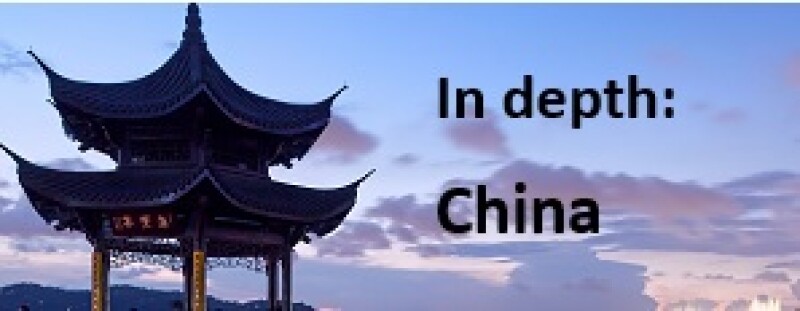Mainland China’s market has never looked more appealing for an IPO. The A-share market has been on fire recently, with the Shanghai Stock Exchange Composite Index rising by 145% just in the past year. The Shenzhen Stock Exchange Composite Index also gained, rising nearly 180% over the same period, making many companies and investors big beneficiaries of the rally.
The gains have also trickled down to Hong Kong, with the Hang Seng Index climbing by about 20% in the past year.

This monumental growth has not gone unnoticed and is enticing Chinese companies that are already listed on the Nasdaq or the New York Stock Exchange (NYSE) to go private with the intention of eventually executing an IPO on the Chinese or Hong Kong stock exchanges.
Just this week, NYSE-listed Taomee Holdings, a children’s entertainment and media company, announced that a consortium was taking the business private.
The consortium plans to acquire all the outstanding and American Depositary Shares (ADSs) of Taomee for $0.1794 a share, or $3.588 per ADS, to be funded via equity and debt. Although the company has not announced its future plans, sources reckon a relisting in Hong Kong or China will follow in a few years once the company has built up its operations.
More businesses are widely expected to follow in Taomee’s footsteps as the benefits of an Asian IPO beckon.
“The arbitrage opportunities are huge,” said Victor Yang, director in the direct investment department of Ping An Trust, speaking at a panel on privatisations at the Hong Kong Venture Capital and Private Equity Association’s (HKVCA) China Private Equity Summit on June 1. “Arbitrage opportunities between the US market and the A- and H-share market give a big boost to returns and are a huge bonus.”
Panelists pointed to last year’s leveraged buyout transactions for gaming companies Giant Interactive and Shanda Games. The former is now understood to be considering an A-share IPO to provide its private equity backers with an exit, although plans are still tentative at this stage.
More recently, online gaming company Perfect World — which is listed on the Nasdaq — said it would be taken private by its chairman Michael Yufeng Chi. A listing in China or Hong Kong will then be on the cards. Meanwhile, advertising firm Focus Media Holding, which delisted from the Nasdaq in 2013, is seeking a backdoor listing on the Shenzhen Stock Exchange, said sources.
“The A-share rally has opened up a big box of US-listed companies that want to list in the A-share market for good returns,” said Jie Lian, a founding partner of Chinese investment firm Primavera Capital Group, at the summit.
All on board
Even before the recent strong run in equities, there were plenty of factors driving companies off US exchanges. Chinese firms listed in the US have faced a tough few years as short-sellers lined up to accuse them of wrongdoing. Focus Media faced the brunt of that before going private, with Muddy Waters accusing it of reporting incorrect figures about its portfolio of LCD screens — something that the company has denied.
Other technology, media and telecommunication (TMT) companies were also targeted, drastically cooling down investor interest for these names and fuelling a series of delistings.
But bankers said there were vastly different reasons for the current batch of take-privates, with companies looking to take advantage of better valuations, greater investor interest and more liquidity in their home countries.
It’s not just TMT companies that are raring to go. Firms in the pharmaceutical and healthcare industries are also seeking greener pastures in China. New York-listed Wuxi PharmaTech, for instance, said on April 30 that it had received a proposal from its founder, chairman and CEO Ge Li, and Ally Bridge Group Capital Partners, to go private.
“The transaction came despite the fact that Wuxi is not cheap, as it has a high valuation of around 30x P/E,” said a senior ECM syndicate banker in Hong Kong. “But they still announced it because there’s an arbitrage opportunity and more potential for growth and returns if they relist onshore.”
Expensive venture
Another case in point is biotech firm 3SBio, which is set to relist in Hong Kong this month. Its IPO will be the second time it has gone public, having first sold ADSs on the Nasdaq in February 2007 before being taken private in May 2013 by its management.
It is now opting for a Hong Kong listing because it wants better liquidity, a warm reception from investors and to trade on an exchange where many of its peers are already listed, said bankers on its IPO.
The prospect of a better valuation is not the only thing drawing US-listed companies back to Asia. According to Lorna Chen, a partner at law firm Shearman & Sterling, who was also speaking at the HKVCA panel, companies are increasingly feeling the pinch of being listed in the US. Extensive reporting obligations to the Securities and Exchange Commission (SEC) makes expenses “unmanageable”, forcing businesses to delist, she said.
But this wave of US delisting means that companies will have to weigh up whether to list in China or Hong Kong, said bankers.
Stock market performance is one thing but listing in China is a long process. In addition, sponsors and issuers are often subject to lock-ups of anywhere between one and three years — something that particularly worries PE-backed businesses.
In contrast, listing in Hong Kong is more straightforward and market-driven, while the exchange also reaps benefits from its proximity to China, said a second ECM syndicate banker.
Hong Kong vs China
Among the hurdles US-listed firms will face when looking at A-share listings is the lengthy restructuring they would have to undergo, said panelists at the HKVCA conference.
When a company lists in the US, it typically does so by setting up a variable interest entity (VIE) in which the offshore unit undertakes the IPO, while the assets sit with an onshore company. The structure allowed companies to get around China’s foreign investment curbs for sectors including technology.
But if businesses want to return to China, they will have to restructure their operations in such a way to avoid VIE — which is expected to be more strictly regulated by the country’s Ministry of Commerce and could eventually vanish.

